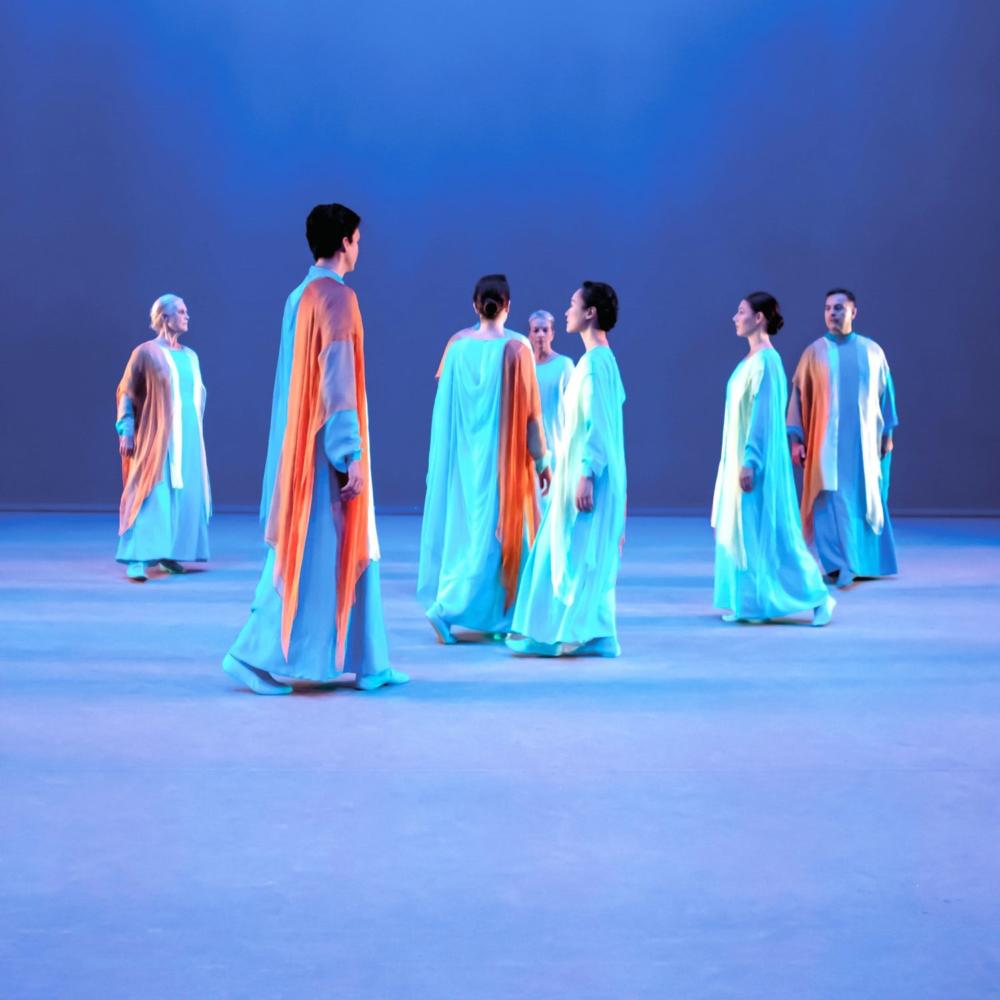The Next Step
‹Wegspuren› [Vestiges on the Path] is the name of the new program of the Goetheanum Eurythmy Ensemble. A piano trio by Schubert and a dramatic sonata for cello and piano by Lera Auerbach are mixed with texts by Rudolf Steiner and Hilde Domin.
It is always about the seemingly self-evident human walking, but the question is often difficult to answer: «How do I find the next step?» An interview with Tanja Masukowitz, Silke Sponheuer, and Rafael Tavares, the artistic directors of the program. Questions by Wolfgang Held.
How did your new Eurythmy program come about?
Tanja Masukowitz With the question of how we can take the next step. With every step, we decide into which future we want to go. We were interested in this Eurythmically.
Silke Sponheuer ‹To walk› is the most elementary image, an event of how we make the future the present and the present the past. If we simply remained seated, this flow would not take place. We all follow goals that we often do not achieve because life sends us on detours and has something more interesting in mind for us. It all starts with the first step.
Rafael Tavares For whom there are endless possibilities, each step makes the environment appear different, opening up a new space. We have chosen some pieces of music, from Schubert to Auerbach, to bring that to the experience.
Christian Morgenstern said: ‹He who knows nothing about the goal will not find the way.› Today the opposite seems true: ‹He who knows nothing about the path will not find the destination.› Is this also your observation?
Masukowitz In our program, we have a short quote from ‹Die Arbeit der Vögel› [The Work of Birds] by the writer Marica Bodrožić. She writes it very similarly: «We cannot walk a path permanently and simultaneously see the wide floating air of the birds on ourselves from above. Sometimes we have to get started, without thinking. The departure must take control of the goal and the view on our feet.» Without observing ourselves and wanting to control everything, sometimes we should just start to walk.
Taveres It is a moment when the will unfolds without being constrained by our thinking. We discover: There is a wisdom of will, a wisdom of our body.
This excerpt comes from an article originally published in the (online exclusive) English Edition of the weekly Newsletter ‹Das Goetheanum›. You can read the full article on the website of 'Das Goetheanum'.
Cover image François Croissant

